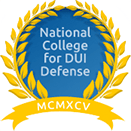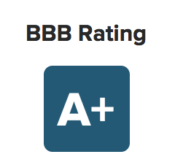Alcotest Certified DWI Defense Lawyers
If you were stopped for suspicion of a NJ DWI offense, it is more likely than not, that you were asked to submit to a breath sample by blowing into a breath test machine or breathalyzer (a.k.a. the Alcotest) that measures blood alcohol concentration (“BAC”). This process can be complicated and confusing to understand and, for this reason, there are set requirements and procedures that must be followed by the arresting officer or the related BAC readings are rendered invalid. As a law firm with former DWI prosecutors and New Jersey DWI defense lawyers who are certified on the breath test, we know all of the angles and defenses to breath test BAC readings. The following are some of the important details you may want to know about breath tests in New Jersey. Do not hesitate to give us a call to discuss the facts surrounding your breath sample and BAC reading.
Basic Requirements for the Breath Test Results to be Valid
In order for a breath test performed on the Alcotest 7110 to be admissible in a court of this state, three things must be shown by the prosecution:
- The breathalyzer was in working order when the breath sample was taken;
- The operator of the machine was properly certified to perform the breath tests; and
- The operator followed proper procedure for taking breath samples.
So in short, the admissibility of BAC results depends upon whether the machine, its operator, and the process followed were reliable at the time of the breath sample. A more detailed discussion regarding the way to challenge and contest breath test results can be found by clicking here.
Use of the Breath Test in New Jersey
The Alcotest 7110 is designed and manufactured by Draeger Industries, which was first put into use in 2003. The Supreme Court of New Jersey has previously held that use of the Alcotest 7110 is scientifically reliable based on its decision in State v. Chun, 194 N.J. 54 (2008). As stated previously, however, there are requirements that must be met for the test results/readings to be admissible, including compliance with the manufacturer guidelines for operation of the Alcotest.
How Does The Breath Test Device Work?
The Alcotest 7110, unlike the previous breath test machine (i.e. Smith Wesson Breathalyzers 900A), actually performs two different BAC tests — an infrared radiation test and an electrochemical test. When air is first blown into the machine it undergoes the infrared radiation test first. The way this test works is that when the breath air is blown in, infrared light/radiation is shot across the sample chamber and is absorbed by the ethanol. The more ethanol that is present in the breath and chamber, the higher the amount of radiation absorbed. Further, the machine can compute a reliable BAC reading by measuring the decrease in infrared radiation received in the breath sample chamber. Learn more information on use of infrared technology.
The electrochemical test is automatically conducted by the Alcotest following the infrared radiation test. This test works, in essence, like a battery. It generates electricity through a chemical reaction, in this case, the alcohol and oxygen. It consists of an anode (the alcohol), a cathode (the oxygen) and an electrolyte that facilitates the flow of electrons between the two. In the Alcotest 7110, the alcohol in the breath sample air is chemically oxidized at the anode. At the same time, oxygen from the air is chemically reduced at the cathode. This produces electrons that flow between the two electrodes. The higher the concentration of alcohol, the higher the flow of electrons and, consequentially, the BAC reading. If both of the results from the IR and EC tests come back identical or within the accepted range of deviation, also referred to as within accepted tolerance, then the machine is supposed to display the BAC of the subject.
The lawyers on our defense team are clearly some of the most qualified for identifying breath test issues in the state — we have 5 of the 50 Alcotest certified attorneys in the state. We know that BAC readings are not automatically evidence and that there are frequently many defenses and/or issues that a knowledgeable lawyer can raise to defeat their use in court. Twenty minute observation, electronic interference, digital download issues, mouthpiece replacement and failure to take breath samples within a reasonable time period of operation are other examples of common areas of defense when it comes to breath test readings. An attorney from our staff would be happy to review all of the facts surrounding your breath sample, including the procedures and evidence relevant to your BAC results, and to plot a course for avoiding admission of the readings as proof of intoxication against you.











